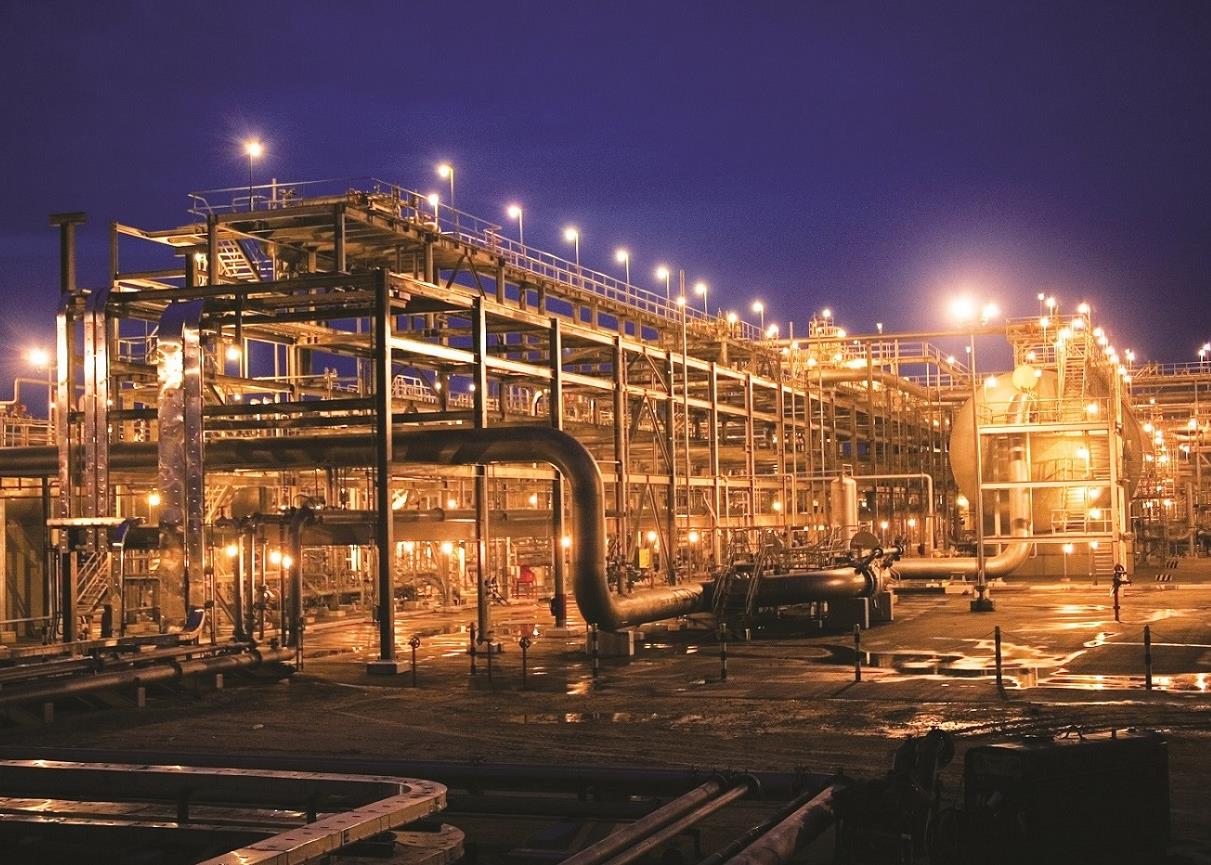

- Netherlands takes the nexus approach to sustainability
- World's largest indoor farm to be built in Abu Dhabi
- Abu Dhabi expands agriculture technology
- Oman food complex awards advance
Over the years, the global food system has brought nutrition, economic opportunity, convenience and enjoyment. Today, however, the state of the world’s food systems exposes profound inequalities in our society.
Amid the fallout from the Covid-19 crisis, the World Food Programme estimates that the number of people experiencing acute food insecurity around the world has doubled to nearly 270 million.
With the growing global population, the burden on food networks continues to grow. Over the next 30 years, food systems will need to feed a projected 10 billion people while withstanding the impacts of a changing climate and protecting natural resources.
That is where countries and governments step in. Efficient, inclusive and resilient food systems underpin the UN's sustainable development goal of Zero Hunger. The global food system needs to be reshaped to be more productive, more inclusive of poor and marginalised populations, environmentally sustainable and resilient, and able to deliver healthy and nutritious diets to all.

Unlocking digital technology has been crucial for farmers in Africa, the Middle East and South Asia
These are complex and systemic challenges, solutions for which transcend geographic, disciplinary and institutional boundaries. They require a combination of interconnected actions at local, national, regional and global levels, and by both public and private actors.
High-performing food systems support the core functions of food production, transformation and consumption efficiently and predictably. They provide adequate incentives and returns to food producers, processors and distributors, and deliver sufficient, safe and nutritious food to well-informed consumers. Such systems also support inclusive structural transformation of economies, boosting productivity and incomes that cut poverty and hunger.
The global food system needs to be reshaped to be more productive, more inclusive of poor and marginalised populations, environmentally sustainable and resilient
Many companies such as PepsiCo are making big investments in sustainability because we know it is critical to our long-term success. We can only move the needle by working together – private sector, governments, development agencies, farmers, and consumers to affect a sustainable, meaningful impact on the planet and people.
 Circular returns
Circular returns
We will only be able to feed everyone today while protecting the natural resources for tomorrow by truly making a circular economy available to consumers through the creation of more products with ingredients that have been grown sustainably.
We are seeing some great progress in this space. The manufacturing sector is transitioning to facilities that are carbon- and water-neutral, packaged using materials that are 100 per cent recycled or renewable, and transported via optimised transportation and logistics processes.
Like manufacturers, some retailers are driving circularity within their sector by focusing on facilities that are carbon-neutral, redistribution of unsold food, and partaking in recycling practices for all materials including food and beverages packaging.
Consumers are seeking to prevent avoidable food waste through storage mechanisms and smart buying and partake in recycling and sorting of their waste to minimise the amount of packaging and food waste ending in landfills.
High-performing food systems support the core functions of food production, transformation and consumption efficiently
To really drive widespread change and achieve a massive transformation of the food system at scale, we also need to collectively advocate for policy reforms and incentives to support innovation and shifts in ways of working. The entire food value chain needs to be addressed to ensure we are creating an inclusive, efficient, sustainable and nutritious system.
Deploying agritech
The challenge the industry is battling right now is climate volatility. And agritech (agricultural technology) is integral to managing this, providing real-time information on crops to growers. For example, by blending procurement traditions with new technologies, we have been able to develop precision agriculture methods to ensure efficient use of resources across farming operations.
In order to help us overcome some of these challenges in the Africa, Middle East and South Asia (Amesa) regions, we are using SmartAGRO, a multilingual user-friendly interface that has strengthened our bond with farmers through enhanced yields, faster payments and transparent quality controls. It has put us on a fast-track to achieve our traceability and sustainability goals for water use efficiency and greenhouse gas footprint.
The SmartAGRO platform has played a pivotal role in enabling our agro supply chain to carry out experiments for irrigation, fertilisation, crop protection and yield estimation. It has paved our way to accelerate our digital journey in building PepsiCo Smart Farms, adapting precision agriculture concepts and tools.
To new beginnings
At PepsiCo, we believe that there is an opportunity to change how the world produces, distributes, consumes and disposes of foods and beverages in order to tackle the shared challenges we face.
As a leader in convenient food and beverages, we find ourselves in a unique position to use our scale for good. And we are targeting every stage of our complex value chain to use resources more efficiently, reduce emissions, replenish water, improve our products and recapture packaging materials.

Agritech is integral to managing climate volatility, providing real-time information on crops to growers
Digital technology has been important to unlock for our farmers in the Amesa region. Over the past few years, we have digitised our farming operations to give us full visibility throughout the crop lifecycle for all our contract farmers.
Through our global Sustainable Farming Programme, we champion and advance positive social, environmental and economic outcomes among the farmers from which we directly source crops. The Sustainable Farming Programme has helped over 32,000 farmers across the region – by promoting responsible agricultural practices that can boost crop yields, improve farmer livelihoods, advance respect for human rights, and protect the local environment and natural resources.
We are also investing in women farmers – addressing the imbalance to create a more sustainable food system that benefits families and everyone in society.
We know that we have a responsibility to help build a more sustainable food system, not only because it is the right thing to do, but because it goes hand in hand with the success of our company.
Expo 2020 as a platform for change
PepsiCo and Expo 2020 Dubai have been working together to bring to the world and showcase the future of sustainable food and beverage, inspire more ideas, while educating visitors on the partners’ shared values towards a better world.
At PepsiCo, we believe that there is an opportunity to change how the world produces, distributes, consumes, and disposes of foods and beverages
PepsiCo will create new experiences for consumers by launching innovations at Expo related to hydration, nutrition, on-the-go snacking and sustainable packaging. Prior to and during the event, we will leverage the collective power of our portfolio of brands to ensure the themes of Expo 2020 reach millions of households internationally.
During the event, visitors can expect creative and one-of-a-kind activations with our global brands such as Pepsi, Gatorade, Aquafina and Lay’s around Expo’s three subthemes of Mobility, Opportunity and Sustainability. As we plan to create more smiles, PepsiCo will bring music events, international ambassadors and memorable brand experiences, to entertain, educate, surprise and delight audiences from across the globe.
PepsiCo will also leverage the global stage that Expo 2020 brings to engage in high-level discussions with critical global voices on several important issues including food, agriculture and livelihoods, water security, and climate and biodiversity.
Expo 2020’s themes of Sustainability, Opportunity and Mobility are in line with PepsiCo values and our “Winning with Purpose” vision for accelerated, sustainable growth. PepsiCo’s priorities are very much aligned with Expo 2020’s vision – and the wider vision of the UAE – to help individuals and communities meet their current needs and future aspirations, in the lead up to, during and after the Expo.
Expo 2020 and PepsiCo will capitalise on these synergies as they work to inspire and educate millions on the importance of collaboration to find solutions to shared challenges.
About the author
 Eugene Willemsen is the CEO
Eugene Willemsen is the CEO
of PepsiCo Africa, Middle East
and South Asia (Amesa)

You might also like...

Red Sea Global awards Marina hotel infrastructure
18 April 2024

Aramco allows more time to revise MGS package bids
18 April 2024

Morocco tenders high-speed rail project
18 April 2024
A MEED Subscription...
Subscribe or upgrade your current MEED.com package to support your strategic planning with the MENA region’s best source of business information. Proceed to our online shop below to find out more about the features in each package.








